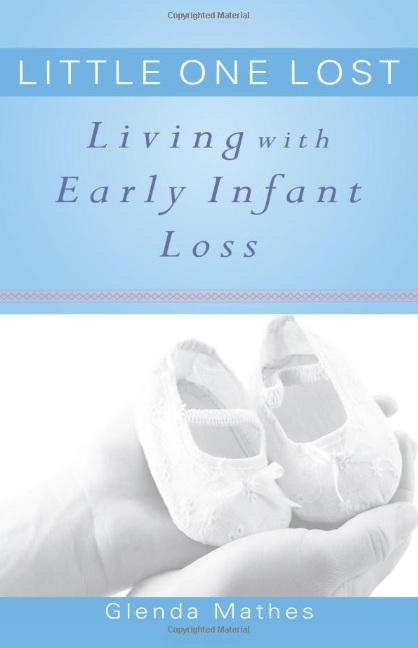Book Review: Little One Lost


Little One Lost: Living with Early Infant Loss, Glenda Mathes, Grandville: Reformed Fellowship Inc., 2012. Softcover, 139 pages, $10.00.
I’ve encountered it many times as a pastor. I’ve also experienced it personally together with my wife. Miscarriage or “early infant loss” is a common enough phenomenon. Though it is so common, we are hardly adept at dealing with it in a Christian way. People don’t know what to say, they don’t how to act, and they don’t how to give comfort. So, more often than not, people say nothing, pretend as if it didn’t happen, or undermine it. Those who’ve experienced it may themselves be reluctant to tell others – many times a couple who have lost a baby early on won’t feel free to tell their pastor or elder either. This book has a huge potential to change the way we view early infant loss and the way we deal with it in our Reformed churches and families.
Readers of Christian Renewal will be familiar with the author since her writing regularly appears there. She’s a member of a United Reformed congregation in Iowa. Little One Lost grew out of an article written for Christian Renewal some years ago. Mathes was contacted by women who had experienced this kind of grief and their encouragement led her to write something more substantial. In the book she draws on the experiences of others, and also that of her and her husband.
Little One Lost is written from the heart and it shows. She writes at the end of how this book was difficult to write. I believe it. But just as the best sermons are those preached from the heart, so also the best and most powerful books are written by authors who care passionately about what they’re writing.
Mathes covers every aspect of this subject and does so with sensitivity. This book is not only about miscarriage, but also about still births and sudden infant deaths. She notes how early infant loss affects not only mothers, but also fathers, siblings, and grandparents. She draws our attention to how abuse or abortion can complicate the grieving process. There’s a helpful and compassionate discussion about funeral planning in these instances. I also appreciated the way in which she identifies infertility also as a loss. Towards the end of the book, Mathes includes a section on things that are and are not helpful to say to grieving parents (including the infamously uncompassionate “Get over it!”).
This is a very practical book. Moreover, the author offers her practical advice and wisdom based on the teaching of Scripture and its summary in the Reformed confessions. She has excellent chapters on biblical, covenantal, and confessional comfort. There was only one concern that I noted. Chapter 8 deals with the grief of fathers. Mathes writes, “God the Father gave up his one and only Son. He knows the pain that fathers as well as mothers feel in loss” (49). While I’m sure that author does not subscribe to the heresy of patripassionism, these words could be misunderstood as pointing in that direction.
Little One Lost is the best book I’ve read this year – no exaggeration. It’s highly recommended for pastors, elders, and anyone who wants to help those grieving the loss of a baby. Those who are working their way through such a loss will also benefit. It can sometimes be hard to work through a book of this nature, which is why I think grieving parents will really appreciate the short chapters – each one is only three or four pages. You can work through it slowly if you have to. This book needed to be written and I commend Glenda Mathes for writing it and Reformed Fellowship for publishing it. I plan to keep several copies on hand.


